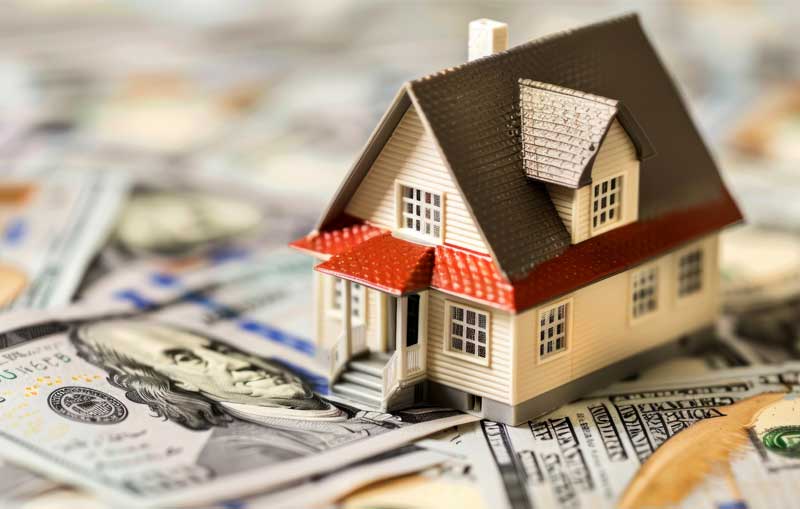If you're considering refinancing your home, now might be a great time to do so. While interest rates have been fluctuating, they're still relatively low compared to historical averages. This means you could potentially secure a lower interest rate and reduce your monthly mortgage payments. However, it's important to act quickly, as interest rates are likely to rise again in the near future. Before you make the decision to refinance make sure you avoid these common mistakes.
5 Common Mistakes to Avoid
1. Not Maximizing Your Credit Score
The era when cash was king seems to be a thing of the past. Today’s economy tends to be far more credit driven, and lending institutions are more than happy to offer products to people with reasonably sound credit histories. In terms of getting the best possible rate to refinance your home, high credit scores rank among the most valuable assets you can possess.
Believe it or not, the difference between a single credit score point over the life of a mortgage can add up to as much as $1,000 for every $100,000 you borrow. That may not seem significant until you do the math on 10 or 20 points. Now we’re talking a new deck, car or tropical vacation. Putting improved credit scores in that perspective, it’s clearly worth taking some time and making an effort to improve your scores as much as possible before refinancing.
It’s not uncommon for people to have errors on their credit reports. A bill that got paid and didn’t come off your report or incorrect reporting from government agencies about payments such as child support can negatively impact your rating when they should not. According to reports, upwards of 20 percent of all credit reports have faulty information and five percent can result in higher mortgage rates than borrowers may be entitled.
2. Underestimating Property Values
Data from resources such as Fannie Mae indicate that a significant number of homeowners do not understand the full growth of their property’s value since the subprime mortgage crisis and financial collapse. Lenders generally prefer homeowners to enjoy 20 percent or more in equity when you refinance your home, and you may have more than you think.
According to resources such as the U.S. Bureau of Labor Statistics, Home prices in the United States have increased by 47% since early 2020, which is a significant increase compared to previous decades. That figure may be a lot higher than many homeowners anticipate when considering whether to refinance your home.
The inherent problem with not having an accurate estimate of your home’s worth is that you could be squandering an opportunity for a beneficial rate right now. This may be particularly true if you were required to secure mortgage insurance or PMI when you originally purchased the property. Improved home equity could negate that factor when you refinance your home. Knowing the actual value of your home allows you to make informed decisions. Find out what your home is worth.
3. Not Shopping Around When You Refinance Your Home
Reconnecting with your existing lender and moving forward may seem like an efficient way to refinance your home. After all, the lender may already have much of the pertinent information needed for the transaction, and you’ve already done business with them in the past. However, the real estate and mortgage underwriting climate has dramatically changed in recent years.
Today’s mortgage applications are often submitted electronically, and rates can differ considerably as upstart and traditional lenders compete. It is also no secret that changes in regulations have allowed banks and other mortgage outfits to write more loans. As someone who already owns a home, you enjoy a unique negotiating position.
Consider for a moment that the difference between a $250,000 30 year fixed 6.25% mortgage and one at 6.0% can save you upwards of $14,500 in interest payouts. Remember, you are an established homeowner. It’s time for financial institutions to make you their best offer.

4. Not Managing Closing Costs and Fees
There seem to be two common errors that people make regarding costs and fees when refinancing. The first issue is that too many people forget to calculate closing costs into the financial equation. Although you can save a substantial amount of money when you refinance your home, it’s essential to be prepared to pay the closing costs.
In some cases, homeowners roll those costs into the new mortgage, and that can save the upfront expense. However, keep in mind that you pay interest on closing costs and fees under this scenario. If you are in a position to pay out-of-pocket, you can gain considerable savings over the life of the loan.
The other common mistake is that borrowers overlook the possibility that some fees are negotiable. Things like title and escrow may enjoy some flexibility, depending on state law. We are in the midst of a very competitive economy and housing market. Assume every inch of your home refinance is open to renegotiating.
5. Waiting for Lower Interest Rates
As mentioned above, there are plenty of splashy headlines claiming that interest rates are going down. Of course, there were just as many last year that said they would increase. The reality of interest rate speculation is that it’s just prognostication by so-called experts. If you are in a position to refinance your home and save money, today’s lending landscape is what matters.
Homeownership is not just personal, it’s also business. That’s why it’s essential to remain grounded in the business realities that exist right now. Hedging your bets on lower rates could result in losing tens of thousands over a quarter or half of a percentage point. If you can take advantage of current mortgage rates, pull the trigger and take the win.
CCCU Is Here to Help!
Refinancing your home can be a strategic financial move, especially in today's market. To maximize the potential benefits, understand the common pitfalls and take proactive steps. Avoid underestimating your home's value, shop around for the best rates, negotiate closing costs, and act now before interest rates rise.
Need help getting started? Our mortgage experts are here to guide you through the refinancing process. Contact us today for a free consultation.
If you are thinking about refinancing your home and want to make sure you can avoid these and other mistakes, use our free checklist "Refinancing Your Mortgage: A Comprehensive Guide to Help Leverage Your Home's Value"



